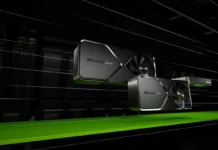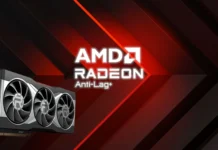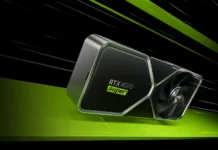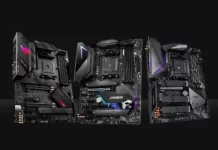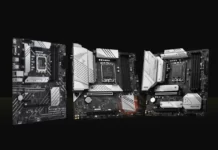Igor’s Lab recently shared some information about Intel’s new Raptor Lake-S Refresh and Arrow Lake-S Desktop CPUs. These are chips that go inside computers and make them work faster. According to the benchmarks, these new CPUs perform really well.
Igor’s Lab got hold of some information from Intel about their new Raptor Lake-S Refresh and Arrow Lake-S Desktop CPUs. These are like the brains of a computer, and they make it run faster. The information they got includes performance projections, which means they predict how well these CPUs will work. Igor’s Lab usually does these predictions themselves, but this time, they got them directly from Intel.
Let’s talk about the performance details in a simpler way. Intel is using the same setup for all three lineups, which means they have the same number of cores and threads. Specifically, they have a chip with 8 cores and 16 threads, which adds up to 24 cores and 32 threads. This is similar to the current best processor, the Core i9-13900K, and it’s expected to be used in the new Raptor Lake-S Refresh CPUs, like the top-of-the-line i9-14900K.
We’re not sure yet if the 8+16 chip used in the Arrow Lake-S lineup will be the best one or if there will be an even more powerful version. There are rumors about a configuration with up to 8 cores and 32 threads, but we can’t confirm it yet.
Intel Raptor Lake-S Refresh & Arrow Lake-S Desktop CPU “Projected” Performance

To explain it in simpler terms, the CPUs were tested at their highest power levels: 253W for the Raptor Lake-S and Refresh chips, and 250W for the Arrow Lake-S Desktop CPUs. They compared these CPUs to the Core i9-13900K, which was used as a starting point. They showed how much better the Raptor Lake-S Refresh and Arrow Lake-S Desktop CPUs performed compared to the Core i9-13900K.
6-Application-Based “Projected” Performance Uplift Over Raptor Lake:
- Intel Raptor Lake-S Refresh – 2% (Average)
- Intel Arrow Lake-S – 14% (Average)

When it comes to how well they work, the Intel Raptor Lake-S Refresh Core i9-14900K showed a small improvement of less than 5%. This improvement might be because it can run at a higher clock speed of 6.0-6.2 GHz compared to the 13900K. On the other hand, the Arrow Lake-S CPU showed a much bigger improvement of up to 21%. That means it can do things faster and better than before.
In most of the tests, except for the single-core SPECrate tests (which measure a specific type of performance), the Intel Arrow Lake-S Desktop CPU shows a big improvement in performance. But remember, these benchmarks are done very early, and the clock speeds (how fast the CPU runs) may change before the chips are actually released. These chips are still more than a year away from being available, so there’s plenty of time for them to get better in terms of how they are made and how they are optimized with software updates.
Furthermore, when we talk about a 21% projection, it means that AMD’s next-generation Ryzen 8000 CPUs, based on Zen 5, could also see a performance boost of around 20-25% compared to Intel’s Arrow Lake CPUs when they are released in their final version. We don’t know yet if this improvement will be sufficient or if AMD will surprise us with an even bigger performance boost in their next Ryzen CPUs. We’ll have to wait and see what AMD has in store for us.
Intel Raptor Lake-S Refresh & Arrow Lake-S Desktop CPU “Projected” iGPU Performance:

It’s not just the CPU performance that gets better with the Intel Arrow Lake-S Desktop CPUs. The graphics part, called the iGPU, also gets a huge improvement. It can now perform more than twice as fast as before, all thanks to the new Alchemist GPU architecture inside. This means that laptops and Mini PCs using these CPUs will have much better graphics performance, which is really exciting!
The new Intel Raptor Lake-S Refresh Desktop CPUs will work with the motherboards that are already out there, called LGA 1700 socketed motherboards. These CPUs will come out in October 2023. As for the Arrow Lake-S Desktop CPUs, they are planned to be released later, in 2024, and they will work with a different kind of motherboard called LGA 1851 socketed motherboards from the 800-series family. Intel has an event scheduled for September 19th where they will share more information about these CPUs, so we can look forward to learning more at that time.
Intel Desktop CPU Generations Comparison:
| PROCESSOR FAMILY | PROCESSOR ARCHITECTURE | PROCESSOR PROCESS | PROCESSORS CORES (MAX) | PLATFORM CHIPSET | PLATFORM SOCKET | MEMORY SUPPORT | TDPS | PCIE SUPPORT | LAUNCH |
|---|---|---|---|---|---|---|---|---|---|
| Intel Sandy Bridge | Sandy Bridge | 32nm | 4/8 | 6-Series | LGA 1155 | DDR3 | 35-95W | PCIe 3.0 | 2011 |
| Intel Ivy Bridge | Ivy Bridge | 22nm | 4/8 | 7-Series | LGA 1155 | DDR3 | 35-77W | PCIe 3.0 | 2012 |
| Intel Haswell | Haswell | 22nm | 4/8 | 8-Series | LGA 1150 | DDR3 | 35-84W | PCIe 3.0 | 2013-2014 |
| Intel Broadwell | Broadwell | 14nm | 4/8 | 9-Series | LGA 1150 | DDR3 | 65W | PCIe 3.0 | 2015 |
| Intel Skylake | Skylake | 14nm | 4/8 | 100-Series | LGA 1151 | DDR4 | 35-91W | PCIe 3.0 | 2015 |
| Intel Kaby Lake | Kaby Lake | 14nm+ | 4/8 | 200-Series | LGA 1151 | DDR4 | 35-91W | PCIe 3.0 | 2017 |
| Intel Coffee Lake | Coffee Lake | 14nm++ | 6/12 | 300-Series | LGA 1151 | DDR4 | 35-95W | PCIe 3.0 | 2017 |
| Intel Coffee Lake Refresh | Coffee Lake | 14nm++ | 8/16 | 300-Series | LGA 1151 | DDR4 | 35-95W | PCIe 3.0 | 2018 |
| Intel Comet Lake | Comet Lake | 14nm++ | 10/20 | 400-Series | LGA 1200 | DDR4 | 35-127W | PCIe 3.0 | 2020 |
| Intel Rocket Lake | Rocket Lake | 14nm++ | 10/20 | 500-Series | LGA 1200 | DDR4 | 35-125W | PCIe 4.0 | 2021 |
| Intel Alder Lake | Golden Cove (P-Core) Gracemont (E-Core) | Intel 7 | 16/24 | 600-Series | LGA 1700 | DDR5/DDR4 | 35-150W | PCIe 5.0 | 2021 |
| Intel Raptor Lake | Raptor Cove (P-Core) Gracemont (E-Core) | Intel 7 | 24/32 | 700-Series | LGA 1700 | DDR5/DDR4 | 35-150W | PCIe 5.0 | 2022 |
| Intel Raptor Lake Refresh | Raptor Cove (P-Core) Gracemont (E-Core) | Intel 7 | 24/32 | 700-Series | LGA 1700 | DDR5/DDR4 | 35-150W | PCIe 5.0 | 2023 |
| Intel Meteor Lake | Redwood Cove (P-Core) Crestmont (E-Core) | Intel 4 | 12/20 | 800-Series | LGA 1851 | DDR5 | – | PCIe 5.0 | Cancelled |
| Intel Arrow Lake | Lion Cove (P-Core) Skymont (E-Core) | Intel 3 | TBD | 800-Series | LGA 1851 | DDR5 | TBD | PCIe 5.0 | 2024 |
| Intel Panther Lake | Cougar Cove (P-Core) Skymont (E-Core) | Intel 3? | TBD | 900-Series | LGA 1851 | DDR5 | TBD | TBD | 2025 |
News Source: https://wccf.tech/1c8vf

